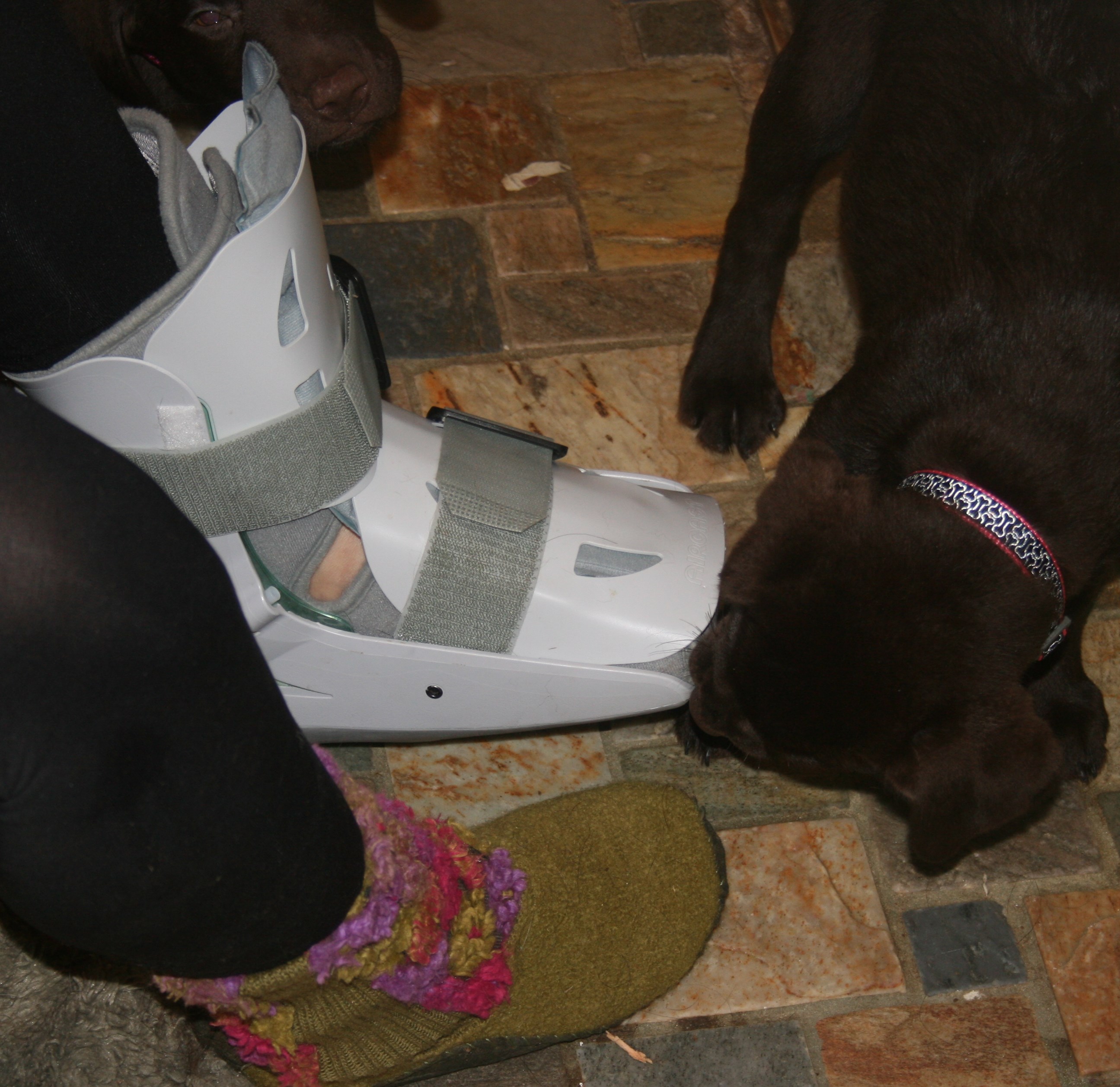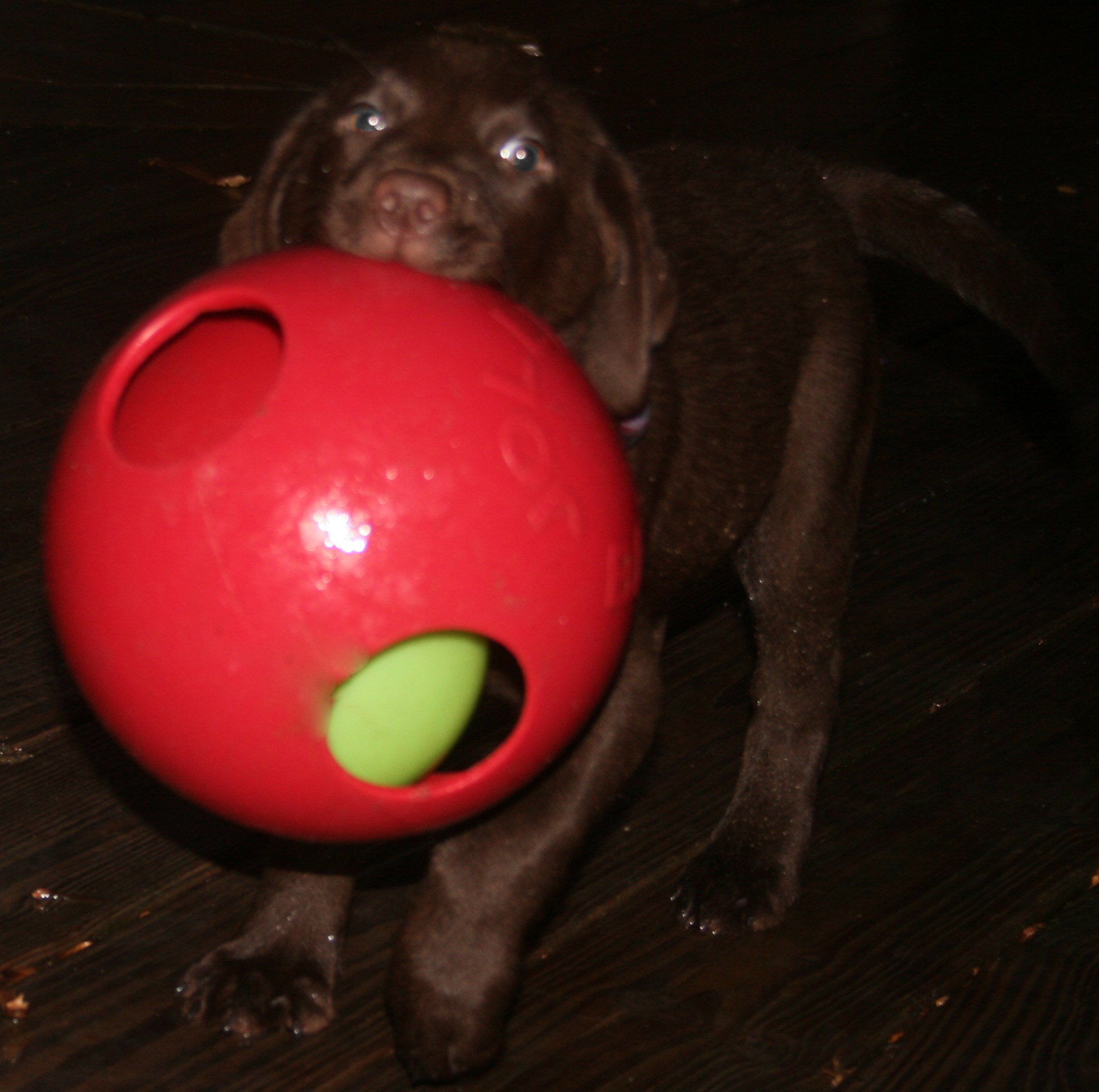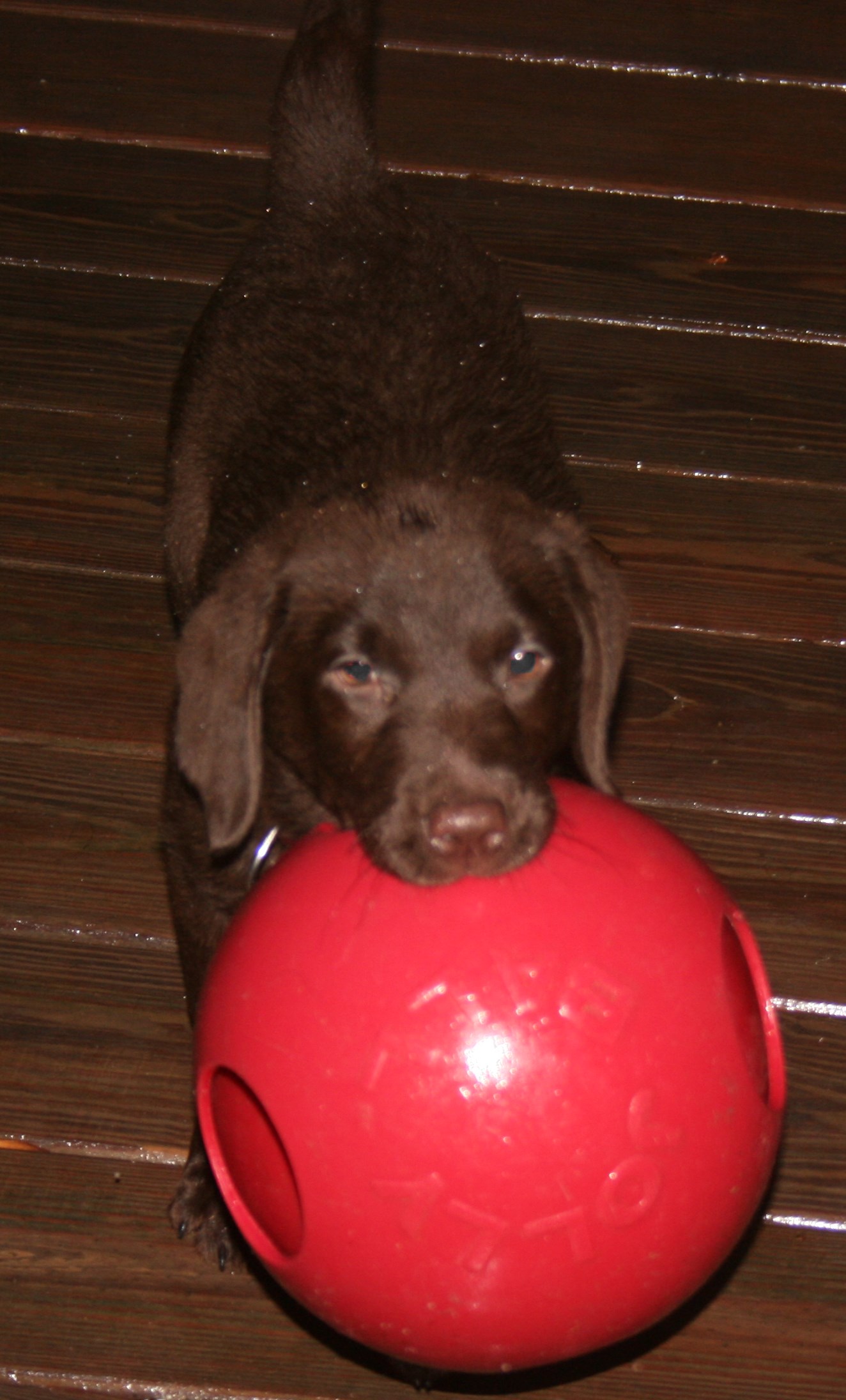LET THEM BE … CURIOUS!
Written by Pam on December 24, 2014
Let your Puppy Be Curious … while being supervised…
Our HGT puppies are naturally curious – their innate sensors tell them to explore all that is around them. All this exploring starts in the whelping box and continues throughout the pup’s lifetime.
Puppies can have an adorably curious mind as you see from the introduction of my air cast – everyone need to slowly approach, sniff the air, take a nibble and then wag their tails with delight that now whatever they think is at the end of my leg – is okay.
I like to constantly introduce an indestructible dog toy to the puppies so that boredom does not set in with their regular toys. The one toy that Epokku has is the largest Jolly ball that I could find – it actually amazes me that an 15 lb lab can lift a 3+ lb ball and carry it around happily and effortlessly. Without any formal training, Epokku runs after the ball, fits her muzzle into a cutout hole and brings it right back to me. This is the true retriever instinct that comes into play at such a young age! When you spend time with your puppy at an early age, you are not only enjoying their curiously but you are building a deep bond with your puppy – a relationship that will last a lifetime! (see pic at the bottom)
I love to ‘hide’ the pup’s favorite toy. What you need is to give the action a word such as ‘hide’ , “find it” etc. and let the puppy see where you hide the toy a few times. Then ask them to find it. After a few tries they will pick up the scent of their toy and find it. Once they figure out the game of find it, start to place the toy in a drawer while they watch – place a strap or kitchen towel from the drawer’s handle and see if they will perform the next step of pulling at the towel to open the drawer to get to their toy. You will be proud and your friends – amazed! Our oldest golden, Mean, has mastered the game of ‘hide’ to the extent that when we ask her to find our daughter who is hiding in any room – her nose immediately goes up in the air and she runs around the house in the search of our daughter and will not stop until she finds her – which to our amazement takes only a few minutes at the most.
Puppies are naturally curious, but sometimes their curiosity can get them in heaps of trouble. Their curiosity makes us laugh and is intriguing for most things but sometimes this same curiosity can cause problems once he or she starts digging up the garden, biting through the deck balusters or selects only one of those new boots you just got for the holiday. Suddenly the laughter turns into pangs of frustration.
So what can you do about this digging and chewing habit? In order for the pup to understand what he is doing is undesirable, you need to catch him in the act or what I call the 5-second rule. Anything after the 5 seconds, your puppy is on to something else and your correction will not be understood. What you need to do within the 5-seconds and immediately finding him chewing on something undesirable is to remove him from the area and give him something else to chew on such as a large elk antler or a hard chew toy. The puppy will soon realize that the leg of the furniture is not to chew on and the fun chew toy is! I never punish my dogs with harsh words; I only use positive reinforcement of redirection. Always, reinforce good behavior with praise and treats this will keep your puppy happy and very much focused on you.
When approaching the chewing problem, begin using adult dog tough chew toys, so that the puppy has specific toys that it is allowed to chew. Rotate the toys so that they remain novel and interesting and can keep up with the puppy’s ever growing curiosity. Train your dog by rewarding it for chewing on its chew toys and try to avoid confusing your puppy by not giving them toys that are similar to items that you do not want them to chew on. Other methods for training that may assist you in training are the commercial anti-chew sprays that use citronella oil or bitter apple.
I believe that when there is a destructive behavior there is some type of anxiety happening. It can be simply separation anxiety – our labs long for us to be with them as part of the pack and when alone they get insufficient stimulation and get anxious. This is when they tend to chew on things to relieve the anxiety. That is why it is so very important to keep the puppy in its kennel when you are away from them. Always exercise your puppy before leaving for a few hours, and practice short departures and gradually increase the length of time that you dog is alone.
Please be careful this holiday season to inspect all new chew toys just to make sure they are safe for your puppy AND most of all have fun! It takes a lot of energy and encouragement – but putting in the time now will make for less time training later! If I can do all this training with a foot in an air cast and train our Epokku, you can do it too! Happy Holidays! Enjoy, Pam



